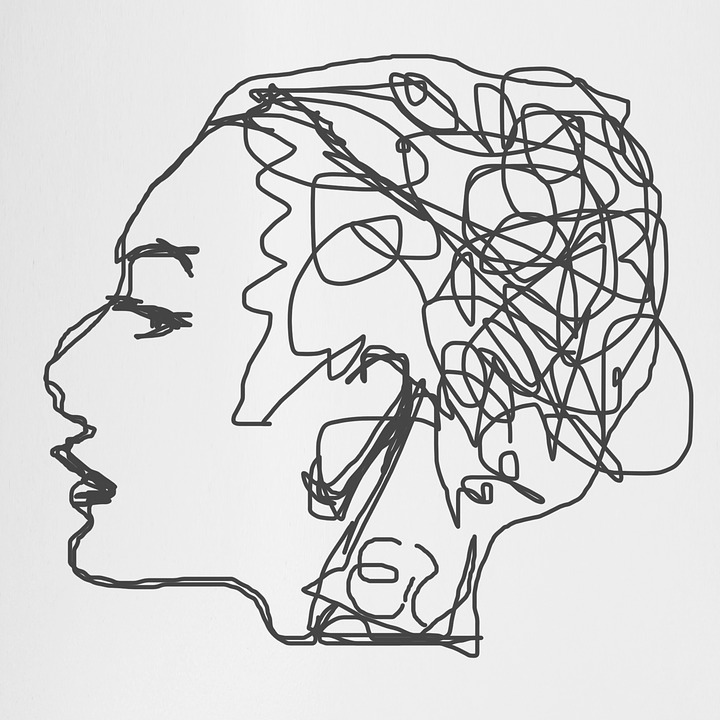


Frenk van Harreveld’s (Social Psychology) question
Dear Reinout,
My question is about addiction and whether the discussion about the origins of addiction may have impact on the individual motivation to reduce it. Specifically, there seems to be an increasing emphasis on addiction as a ‘disease’ and on social determinants of addiction, like poverty and education. Opponents of this view, such as Sally Satel, argue that this may be an overly politically correct narrative that reduces the personal responsibility people have over their addiction, and thus also reduces the feelings of agency over combatting one’s addiction. What is your view on the addiction as a disease narrative and do you think viewing one’s addiction as a disease turns people into victims and thus reduces one’s motivation to fight it? Or is the motivation to engage in programs to combat addiction unrelated to views on what caused the addiction to begin with?
Frenk
Reinout Wiers’ (Developmental Psychology) answer
Dear Frenk,
In 1997 Alan Leshner, the then director of the National Institute on Drug Abuse (NIDA), the biggest institute financing addiction research, claimed in the journal Science that addiction is a chronic brain disease. Billions of research money have been spent since, aimed at revealing the underlying genetic and neural mechanisms of addiction. However, results have been sobering, and have not led to improvements in the clinical treatment of addiction (with an outlook similar in many other areas of psychiatry, a reason why the pharmaceutical industry largely moved out of this area). During the past decade, many researchers have started to criticize the idea that addiction is a chronic brain disease. Critics put forward several reasons. First, in contrast to ‘real’ brain diseases like Alzheimer’s disease, many people successfully recover from addiction, often without professional help. In fact, epidemiological data show that most people quit without professional help, and it might even be the case that only people who have additional problems and don’t succeed in spontaneous recoveryseek help. Of course, it is possible that a subgroup of people with addiction actually do have an acquired chronic brain disease. However, rather than claiming that this is the current state of scientific affairs (as is still advocated by NIDA), it should be considered as a hypothesis.
What is the evidence? Well, there are differences in brain functioning between addicted people and non-addicted people. But that does not mean anything in itself: there are also differences between cab drivers and non-cab drivers (in the hippocampal areas). In short: when you learn something and experience important things, these will change your brain. What needs to be shown, as I argued in a recent paper, is first that the brain change is caused by the addiction (many of the differences, for example, related to impulsivity, could
also be precursors of addiction). Second, it would need to be shown that these differences remain after successful abstinence. However, many of the neural abnormalities in patients diminish or disappear after successful abstinence. Third, it would have to be shown that the remaining chronic abnormalities prevent recovery. To the best of my knowledge, this has not been demonstrated. This does not mean that addiction in extreme cases is not a brain disease, but that it is still a hypothesis. Finally, NIDA claimed that the notion of addiction as a chronic brain disease is beneficial for people affected: it would take away the blame and guilt. This could be important because addicted people should be treated humanely and not be blamed? Sure, we want people to feel less guilt and receive the right treatment, but recent research actually showed that the notion of a chronic brain disease leads to hopelessness in people affected: no matter what they do their ‘chronic brain disease’ will remain a part of them forever.
From my perspective, the brain of addicted people does show abnormalities, for example, related to attention for addiction-related cues and related to decision-making in the presence of such cues. More importantly, this can be changed, by changing behavior (the brain is plastic), with or without profes-
sional help, and newly developed targeted training methods may help in this recovery. I would argue that this message is more hopeful for people struggling with addiction than the chronic brain disease perspective, and matches better with the empirical evidence.
Reinout
Reinout van Wiers’ question is for Sanne de Wit (Clinical Psychology)
Dear Sanne,
In Ask the Expert, I have answered the question into which extent addiction is a disease of the brain. My question for you is about habitual behavior in humans. There is also a view on habitual behavior in humans that states that habitual behavior can be totally unconscious. What is, in your perspective, the evidence for this view on habitual behavior in humans?
Reinout

Frenk van Harreveld’s (Social Psychology) question
Dear Reinout,
My question is about addiction and whether the discussion about the origins of addiction may have impact on the individual motivation to reduce it. Specifically, there seems to be an increasing emphasis on addiction as a ‘disease’ and on social determinants of addiction, like poverty and education. Opponents of this view, such as Sally Satel, argue that this may be an overly politically correct narrative that reduces the personal responsibility people have over their addiction, and thus also reduces the feelings of agency over combatting one’s addiction. What is your view on the addiction as a disease narrative and do you think viewing one’s addiction as a disease turns people into victims and thus reduces one’s motivation to fight it? Or is the motivation to engage in programs to combat addiction unrelated to views on what caused the addiction to begin with?
Frenk

Reinout Wiers’ (Developmental Psychology) answer
Dear Frenk,
In 1997 Alan Leshner, the then director of the National Institute on Drug Abuse (NIDA), the biggest institute financing addiction research, claimed in the journal Science that addiction is a chronic brain disease. Billions of research money have been spent since, aimed at revealing the underlying genetic and neural mechanisms of addiction. However, results have been sobering, and have not led to improvements in the clinical treatment of addiction (with an outlook similar in many other areas of psychiatry, a reason why the pharmaceutical industry largely moved out of this area). During the past decade, many researchers have started to criticize the idea that addiction is a chronic brain disease. Critics put forward several reasons. First, in contrast to ‘real’ brain diseases like Alzheimer’s disease, many people successfully recover from addiction, often without professional help. In fact, epidemiological data show that most people quit without professional help, and it might even be the case that only people who have additional problems and don’t succeed in spontaneous recoveryseek help. Of course, it is possible that a subgroup of people with addiction actually do have an acquired chronic brain disease. However, rather than claiming that this is the current state of scientific affairs (as is still advocated by NIDA), it should be considered as a hypothesis.
What is the evidence? Well, there are differences in brain functioning between addicted people and non-addicted people. But that does not mean anything in itself: there are also differences between cab drivers and non-cab drivers (in the hippocampal areas). In short: when you learn something and experience important things, these will change your brain. What needs to be shown, as I argued in a recent paper, is first that the brain change is caused by the addiction (many of the differences, for example, related to impulsivity, could
also be precursors of addiction). Second, it would need to be shown that these differences remain after successful abstinence. However, many of the neural abnormalities in patients diminish or disappear after successful abstinence. Third, it would have to be shown that the remaining chronic abnormalities prevent recovery. To the best of my knowledge, this has not been demonstrated. This does not mean that addiction in extreme cases is not a brain disease, but that it is still a hypothesis. Finally, NIDA claimed that the notion of addiction as a chronic brain disease is beneficial for people affected: it would take away the blame and guilt. This could be important because addicted people should be treated humanely and not be blamed? Sure, we want people to feel less guilt and receive the right treatment, but recent research actually showed that the notion of a chronic brain disease leads to hopelessness in people affected: no matter what they do their ‘chronic brain disease’ will remain a part of them forever.
From my perspective, the brain of addicted people does show abnormalities, for example, related to attention for addiction-related cues and related to decision-making in the presence of such cues. More importantly, this can be changed, by changing behavior (the brain is plastic), with or without profes-
sional help, and newly developed targeted training methods may help in this recovery. I would argue that this message is more hopeful for people struggling with addiction than the chronic brain disease perspective, and matches better with the empirical evidence.
Reinout
Reinout van Wiers’ question is for Sanne de Wit (Clinical Psychology)
Dear Sanne,
In Ask the Expert, I have answered the question into which extent addiction is a disease of the brain. My question for you is about habitual behavior in humans. There is also a view on habitual behavior in humans that states that habitual behavior can be totally unconscious. What is, in your perspective, the evidence for this view on habitual behavior in humans?
Reinout



